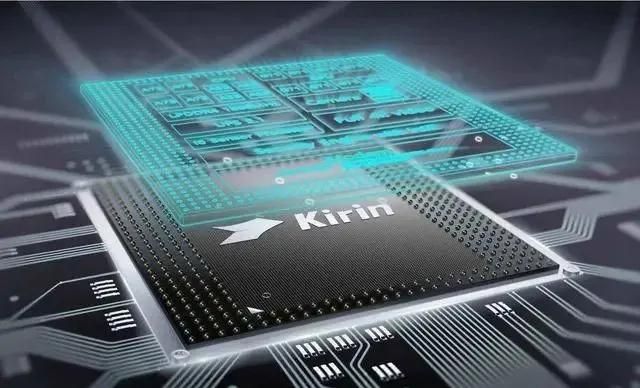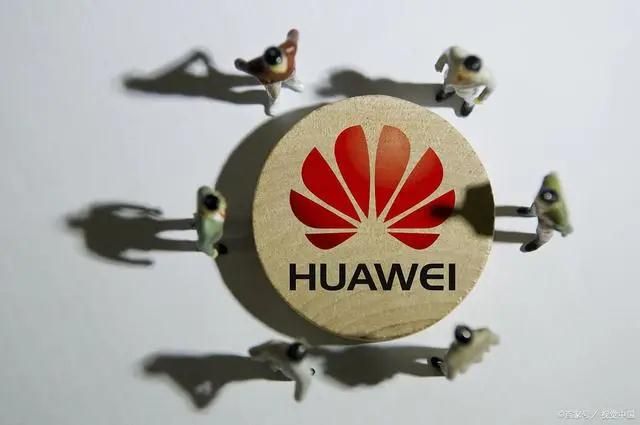Deutsche Telekom welcomes Huawei 5G! Huawei joins forces to break U.S. blockade
As we all know, the United States has recently been actively wooing allies to ban the use of Huawei's 5G technology on the grounds of so-called "national security". However, Deutsche Telekom, Germany's largest telecommunications operator, recently told the Frankfurter Allgemeine Zeitung that the company needs Huawei in the process of expanding 5G and hopes to strengthen its cooperative relationship with Huawei.
1. Deutsche Telekom wants to cooperate with Huawei on 5G projects
According to DTS news agency, the advisory committee of the German Federal Network Administration will convene several of the largest communication operators in Germany, including Deutsche Telekom, Vodafone, and Telefonica, to hold a "mobile summit" today (May 4) to discuss 5G-related issues. issue.
Dirk Weisner, a member of Deutsche Telekom's board of directors and general manager of the German company, said on the 2nd that if you want to achieve the goal of building 2,000 new LTE base stations by the end of this year, you need Huawei's participation. He emphasized that if Huawei is excluded, Deutsche Telekom cannot quickly solve the 5G signal coverage problem.
Weisner explained that because the technologies of various 5G suppliers are not currently compatible, "if Huawei equipment is installed in an area, then Ericsson equipment cannot be used, and vice versa." He emphasized that if Huawei is excluded, "we will not be able to quickly eliminate 5G signal blind spots."
Screenshot of Handelsblatt report: Deutsche Telekom wants to cooperate with Huawei, triggering debate in Berlin
In addition, the German Handelsblatt reported on April 29 that Deutsche Telekom had informed the German Federal Ministry of the Interior that it hoped to strengthen its cooperative relationship with Huawei.
As we all know, Huawei's base stations have a high degree of modularity and are deployed very quickly. Deutsche Telekom has cooperated with many 5G suppliers (Ericsson, Nokia, etc.). I believe that after comparison among many, from the perspective of deployment efficiency: Huawei is almost the best choice!
Meanwhile, Deutsche Telekom's two main rivals, Vodafone and Telefónica, both use Huawei equipment and have taken the lead in the speed of 5G network deployment. If the situation still develops like this, Deutsche Telekom will probably lose its leading position in the field of Deutsche Telekom.

2. Germany’s 5G construction has been full of twists and turns. What are you hesitating about?
In fact, Germany's choice of Huawei in building 5G has been full of twists and turns, and has gone through rounds of endless discussions.
As early as November last year, the German "Economic Weekly" quoted the management of Deutsche Telekom and released an exclusive report saying, "In the next two years, the proportion of Asian components will become zero." Deutsche Telekom's core network Huawei components currently in use will be gradually replaced.
Deutsche Telekom said: "Components produced in the United States will also be replaced and replaced with new parts." Deutsche Telekom said this step is a normal component update. "Every three to five years, we replace network components."
At the same time, in response to the US ban on Huawei, Deutsche Telekom also made surprising adjustments to its procurement policy. For example, in the future, Deutsche Telekom will directly purchase products from database supplier Oracle, instead of purchasing a full set of solutions including Oracle components from Huawei.
However, as far as Germany is concerned, it is currently unable to independently complete the research and development and construction of 5G technology by itself, so companies with advanced 5G technology such as Huawei are urgently needed to participate in the construction of 5G technology in Germany. In addition, Deutsche Telekom, as the largest telecommunications provider in Europe, will lose more than it loses if it loses users due to too slow 5G.
In addition, the Federation of German Industry (BDI) has stated that Germany should not exclude Huawei from 5G. Dieter Kempf, president of the Confederation of German Industries (BDI), said that if you are only skeptical about Huawei's 5G technology and equipment, please show evidence. If you can't produce evidence, you should not exclude Huawei's 5G technology and equipment.
At the same time, German Federal Economics Minister Peter Altmaier does not believe that Huawei’s participation in 5G expansion will threaten national security. He said that every product and every piece of equipment must be safe when used in critical infrastructure, and should not be targeted at Huawei's 5G, but should be treated equally, as long as the product is safe, it can be used.
Therefore, according to German media reports, the German ruling party, the CDU, and its sister party, the CSU, passed a document in February that does not prohibit Chinese companies from participating in the construction of Germany's 5G network.
However, some media reported that two weeks ago, Deutsche Telekom stated that Deutsche Telekom said it would no longer use Huawei equipment and began to dismantle Huawei equipment. However, just over half a month later, Deutsche Telekom once again firmly chose Huawei.
So, why is Germany hesitating so much? First, of course, is pressure from the United States. Since the United States targeted Huawei last year, it has launched extensive lobbying around the world, which has inevitably brought a lot of pressure to European countries. Secondly, during the epidemic, Germany has become heavily dependent on supplies from China, and it obviously does not want to rely too much on Huawei in the 5G field.
However, with three companies—Huawei, Ericsson and Nokia—which currently control 80 to 85 percent of the 5G network equipment market, there aren't many options for Deutsche Telekom. Secondly, Huawei 5G is extremely competitive in terms of quality and price, and it is natural for it to stand out in a fair competitive environment.
Jürgen Grützner, head of the German Telecom Industry Association (VATM), said that all telecom operators use equipment from China, whether in the fixed telephone network or in the field of mobile communications. In particular, Huawei's products stand out because of their higher quality and cheaper prices. Germany cannot lag behind and must speed up the construction of network facilities.
Starting from Deutsche Telekom, the construction of 5G by Chinese companies in Germany may also start a new stage. According to the "Business Daily" news, "1&1", a rising star among German domestic telecom operators, is negotiating with ZTE on cooperation in 5G network technology. "1&1" also plans to get a share of Germany's 5G network service market. Martin Witt, chairman of "1&1", said frankly that Chinese equipment suppliers are particularly ahead in antenna technology.
3. Huawei's vertical and horizontal alliances under the "American Conspiracy"
Huawei's breakthrough in the German market may open up a new situation in the European market. Previously, the British government has stated that it will allow Huawei's 5G technology to enter the British market with restrictions. The United Kingdom is a very important country in Europe. Although it has already left the European Union, it may still slowly spread to the whole of Europe after the British node is opened.

Now, Germany has publicly expressed its support for Huawei in 5G, which is definitely a major benefit for Huawei in the European market. As we all know, Germany is one of the leaders of the European Union and has strong influence in Europe. The recognition of Huawei 5G by the German market also means that Huawei 5G may form a domino effect in Europe.
At the same time, Huawei also regards Europe as an important outlet to break through the US blockade. In addition to the 5G market, Huawei is also targeting the strength of European technology companies, waiting for opportunities to seek cooperation and achieve multi-directional breakthroughs.
Last month, Japanese media reported that Huawei and STMicroelectronics will jointly design chips to create chips for smartphones and automobiles. Neither Huawei nor STMicroelectronics commented on the news.
Although Huawei and STMicroelectronics have cooperated for a long time before, they have not jointly developed advanced chips for smartphones, other mobile devices, and automobiles. Since May 2019, the United States has repeatedly adopted suppression policies against Huawei, prohibiting Huawei from purchasing technology and components from American companies, while Huawei is looking for partners around the world to replace American products and technologies.
STMicroelectronics was formed by the merger of two Italian and French semiconductor companies and is one of the world's largest semiconductor companies. STMicroelectronics is an industry leader in analog circuits, discrete power semiconductors, mobile phone camera modules and automotive integrated circuits, and is the world's fourth largest automotive electronics supplier. The top ten customers in 2019 include Apple, Huawei, Bosch, Samsung, Tesla, HP, etc.
According to industry insiders, Huawei's move will not only help it make better use of its self-driving car technology, but also help it get rid of its dependence on specific chip suppliers to a certain extent. Once Huawei reaches a cooperation with STMicroelectronics, it also means that it will obtain software products from American companies such as Synopsys and Cadence Design Systems.
Time flies, and it has been nearly a year since Huawei was included in the "Entity List" by the United States. In the past year, Huawei has also changed from a passive counterattack to gradually opening up a new situation. Today is the May 4th Youth Day, Huawei, a 33-year-old "youth", has also passed through and is continuing to move forward with his head held high, and the future can be expected.
Proposal recommendation
- TOP



